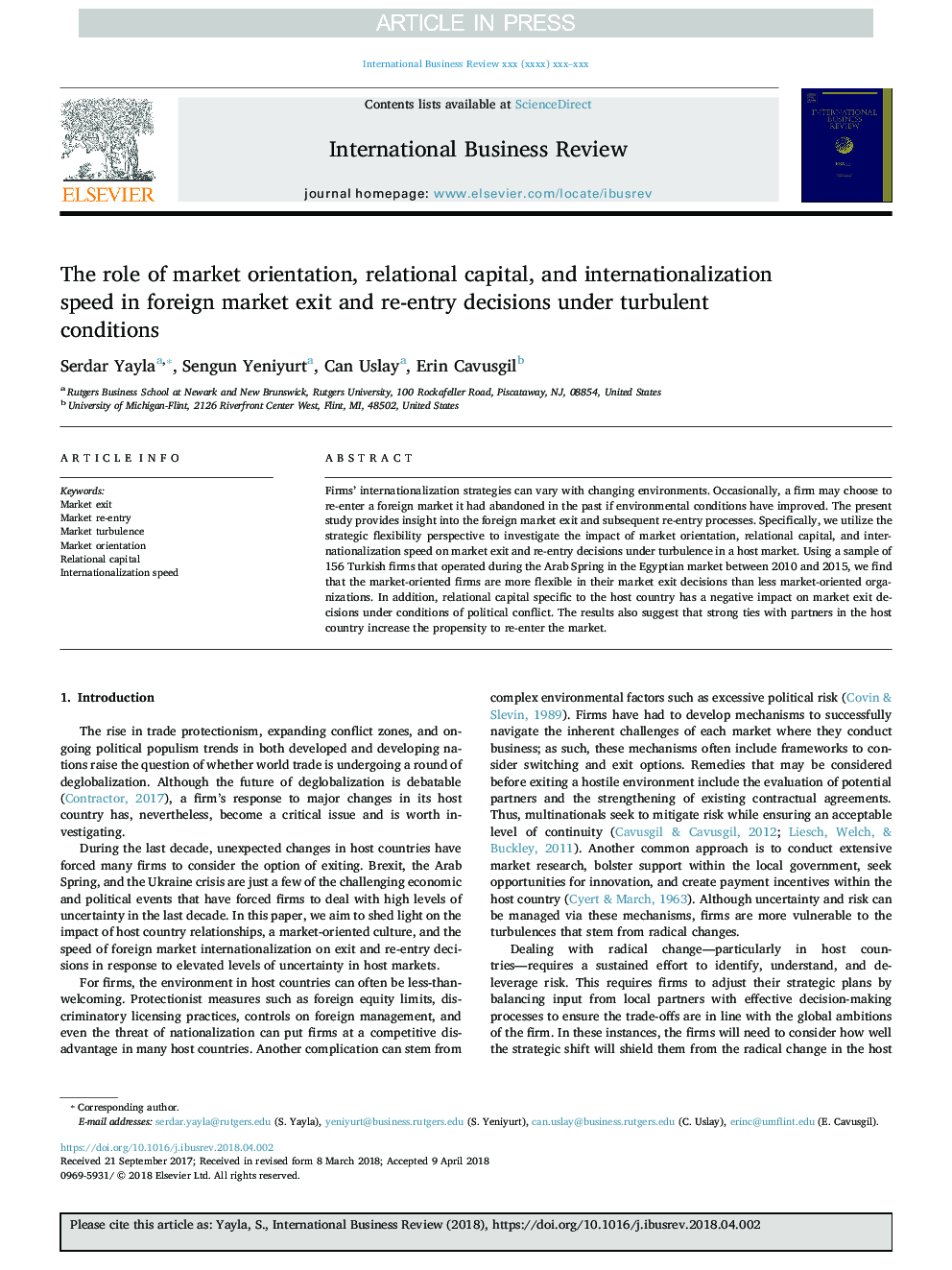| Article ID | Journal | Published Year | Pages | File Type |
|---|---|---|---|---|
| 8965253 | International Business Review | 2018 | 11 Pages |
Abstract
Firms' internationalization strategies can vary with changing environments. Occasionally, a firm may choose to re-enter a foreign market it had abandoned in the past if environmental conditions have improved. The present study provides insight into the foreign market exit and subsequent re-entry processes. Specifically, we utilize the strategic flexibility perspective to investigate the impact of market orientation, relational capital, and internationalization speed on market exit and re-entry decisions under turbulence in a host market. Using a sample of 156 Turkish firms that operated during the Arab Spring in the Egyptian market between 2010 and 2015, we find that the market-oriented firms are more flexible in their market exit decisions than less market-oriented organizations. In addition, relational capital specific to the host country has a negative impact on market exit decisions under conditions of political conflict. The results also suggest that strong ties with partners in the host country increase the propensity to re-enter the market.
Related Topics
Social Sciences and Humanities
Business, Management and Accounting
Business and International Management
Authors
Serdar Yayla, Sengun Yeniyurt, Can Uslay, Erin Cavusgil,
